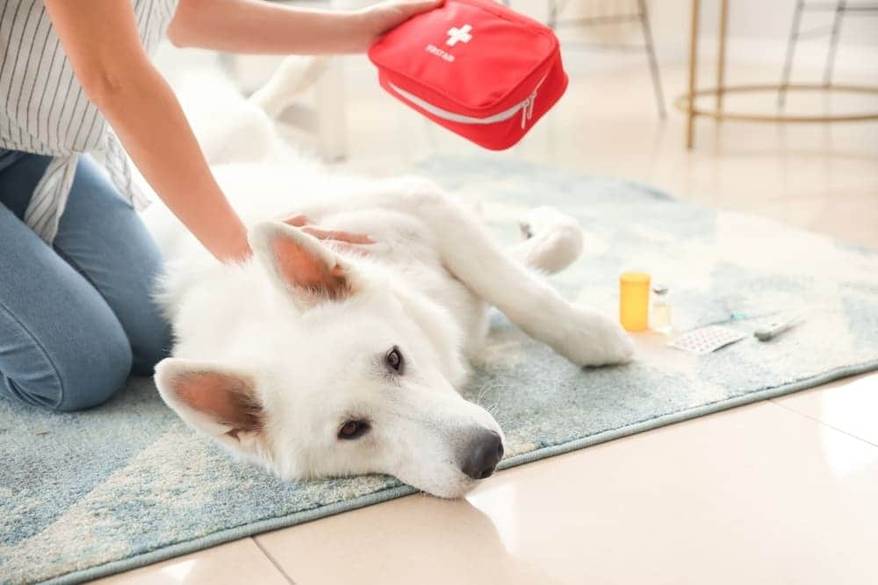
-
Find the right food for your pet
Take this quiz to see which food may be the best for your furry friend.
Find the right food for your pet
Take this quiz to see which food may be the best for your furry friend.
Featured products
 Adult 7+ Perfect Digestion Chicken, Whole Oats & Brown Rice Recipe Dog Food
Adult 7+ Perfect Digestion Chicken, Whole Oats & Brown Rice Recipe Dog FoodScience Diet's breakthrough nutrition supports ultimate digestive well-being & healthy microbiome for dogs age 7+
Shop Now Adult Healthy Cuisine Roasted Chicken, Carrots & Spinach Stew Dog Food
Adult Healthy Cuisine Roasted Chicken, Carrots & Spinach Stew Dog FoodDelicious roasted chicken paired with tender vegetables in a succulent stew
Shop Now Small & Mini Savory Stew with Chicken & Vegetables Dog Food
Small & Mini Savory Stew with Chicken & Vegetables Dog FoodA delicious complement to the nutrition of Science Diet Small & Mini 7+ dog food
Shop NowFeatured products
 Adult 7+ Senior Vitality Chicken & Vegetable Stew Cat Food
Adult 7+ Senior Vitality Chicken & Vegetable Stew Cat FoodImproves Everyday Ability to Get Up & Go
Shop Now Adult Savory Entrée Can Variety Pack Cat Food
Adult Savory Entrée Can Variety Pack Cat FoodPrecisely balanced nutrition with the delicious taste of savory minced chicken to help fuel the energy needs of cats during the prime of their life
Shop Now Adult 7+ Tender Tuna Dinner Cat Food
Adult 7+ Tender Tuna Dinner Cat FoodWith delicious chunks in a decadent gravy
Shop Now -
Dog
- Dog Tips & Articles
-
Health Category
- Weight
- Food & Environmental Sensitivities
- Urinary
- Digestive
- Joint
- Kidney
-
Life Stage
- Puppy Nutrition
- Adult Nutrition
- Senior Nutrition
Cat
- Cat Tips & Articles
-
Health Category
- Weight
- Skin & Food Sensitivities
- Urinary
- Digestive
- Kidney
-
Life Stage
- Kitten Nutrition
- Adult Nutrition
Featured articles
 Does My Pet Hate Me?
Does My Pet Hate Me?Learn tips for bonding with your pet if you've ever thought, 'My dog doesn't like me, or 'Why do I have a standoffish cat?'
Read More Do Dogs and Cats have Belly Buttons?
Do Dogs and Cats have Belly Buttons?Learn whether cats & dogs have belly buttons like humans, what the function is, and if there are any health concerns associated with it.
Read More Why Are Dogs and Cats So Cute?
Why Are Dogs and Cats So Cute?If waggy puppy dog tails and furry kitten yawns make you swoon, you're not alone. Why are cats so cute? And, dogs too! Let's find out!
Read More -


Developing an emergency plan for your family is essential — and that includes your pets. Whether a storm hits or your pet injures themselves, being prepared can make all the difference. And no preparedness plan is complete without a well-stocked first aid kit.
So, in honor of Pet First Aid Awareness Month, here's what to include in a pet emergency kit and best practices to keep your furry pals safe all year.
What Is Pet First Aid Awareness Month?
Each April, the American Red Cross raises awareness about pet first aid and emergency preparedness. The organization provides an online class and app as part of this initiative. The goal is to educate pet parents so they can better prepare for emergencies and keep their pets safe.
"Once a disaster strikes, there is often little time to react, so I advise pet parents to take these simple steps now to ensure their families, which includes their pets, are ready to act quickly. It's critical to create a disaster preparedness plan and pack a pet emergency kit to add to your supplies," explains Dr. Roberta Westbrook, Chief Animal Welfare and Medical Officer at Houston SPCA, a leading agency in emergency response for more than 40 years.
"You also want to make sure your pets' microchips and ID collars have your updated contact information. Remember, you can also reach out to your veterinarian and local animal shelter for additional tips on how best to prepare."
Of course, emergencies can happen any time of year. So, there's no time like the present to stock a preparedness kit for your pets and learn skills that could save your dog's or cat's life.

What to Include in a Pet Emergency Kit
Make sure you're ready to administer first aid to your kitty or pup if they get sick or injured. Tufts University's Cummings School of Veterinary Medicine and DogTime recommend including these essential items in a first aid kit for pets:
Basic First Aid Supplies
Disposable gloves
Antiseptic wipes
Sterile, nonstick gauze pads
Rolled gauze for bandages
Adhesive tape
Cohesive bandage wrap
Gauze sponges
Cotton balls and swabs
Saline solution
Eyewash solution
Styptic powder
Ice pack
Tools and Implements
Tweezers
Blunt-nosed scissors
Dosing syringe or eye dropper
Rectal thermometer
Medications
Antihistamines
Antibiotic ointment
3% hydrogen peroxide to induce vomiting
Antacids with famotidine
Hydrocortisone cream
Prescription medications (enough to tide your pet over if you can't get a refill right away)
Additional Essentials
Your pet's medical records and proof of vaccination
Emergency veterinarian contact information
Poison control hotline numbers
Towels or blankets
An extra leash
A basket muzzle to prevent stressed dogs from nipping or biting their helpers


Tasty Tips
Young pets may need several visits in their first year for vaccinations. Adult pets generally benefit from annual check-ups, while senior or special-needs pets might require more frequent visits.

Pet Emergency Kit Best Practices
Keep these considerations in mind as you assemble your pet emergency kit.
Take Your Area's Climate Into Account
Consider the types of natural disasters or emergencies you might face in your area, such as hurricanes, wildfires or snow storms. Include items to get your pet safely through an emergency, whether you shelter in place or need to evacuate.
For example, if you live in an area that experiences extreme heat, include items to help your pet cool off, especially if you have a dog who's susceptible to breathing issues and heat illness like pugs or French bulldogs. Add extra water bottles or a bowl to your kit and a rectal thermometer to check their temperature.
Store Your Kit Safely
Keep your kit in a dry, safe, easily accessible place. You may want to store multiple kits, such as one at home and one in your car if you travel with your pet. While you should have easy access to the kit, keep it out of your pet's reach to prevent them from chewing or swallowing any items.
Check Your Kit Regularly
Go through your kit periodically to replace any used-up or expired items.
Learn First Aid Skills
Know how to use the items in your first aid kit. Talk to your vet about proper dosing for emergency medications, and consider taking a pet first aid class. Key skills you may want to learn include checking your pet's vital signs, administering CPR, helping a choking dog or choking cat, and caring for wounds.
Know When to Contact Your Vet
While your emergency kit can help you treat an issue early, always contact your vet, too. They can help direct you on how to best use your first aid kit (especially any medications) and determine whether you need to bring your pet in for professional care.
A Well-Stocked Kit for Peace of Mind
In an emergency, being prepared and acting quickly can make a big difference in your pet's outcome and help you both stay calm. While hopefully you'll never need to use your emergency kit, it can give you invaluable peace of mind that you're prepared to handle whatever comes your and your pet's way.


Jean Marie Bauhaus is a pet parent, pet blogger, and novelist from Tulsa, Oklahoma, where she usually writes under the supervision of a lapful of fur babies.
Related products

Improves Everyday Ability to Get Up & Go

With delicious chunks in a decadent gravy

Precisely balanced nutrition with the delicious taste of savory minced chicken to help fuel the energy needs of cats during the prime of their life

Supports energy level and beautiful fur in mature cats
Related articles

Discover how and where to store your dry, as well as canned, dog and cat food. Learn how to find the "best before" dates on all Hill's pet food packaging.

Learn the impact of heading back to school and suddenly leaving your pet home alone, how you can help this transition & ease their separation anxiety.

Monitoring your pet’s body condition score (BCS) can help you help your pet maintain proper growth and weight for a long, healthy life.

Discover how your pets might be impacted by the loss of another. Learn how to recognize their signs of grieving & how to help them cope with their loss.

Put your pet on a diet without them knowing
Our low calorie formula helps you control your pet's weight. It's packed with high-quality protein for building lean muscles, and made with purposeful ingredients for a flavorful, nutritious meal. Clinically proven antioxidants, Vitamin C+E, help promote a healthy immune system.
Put your pet on a diet without them knowing
Our low calorie formula helps you control your pet's weight. It's packed with high-quality protein for building lean muscles, and made with purposeful ingredients for a flavorful, nutritious meal. Clinically proven antioxidants, Vitamin C+E, help promote a healthy immune system.

